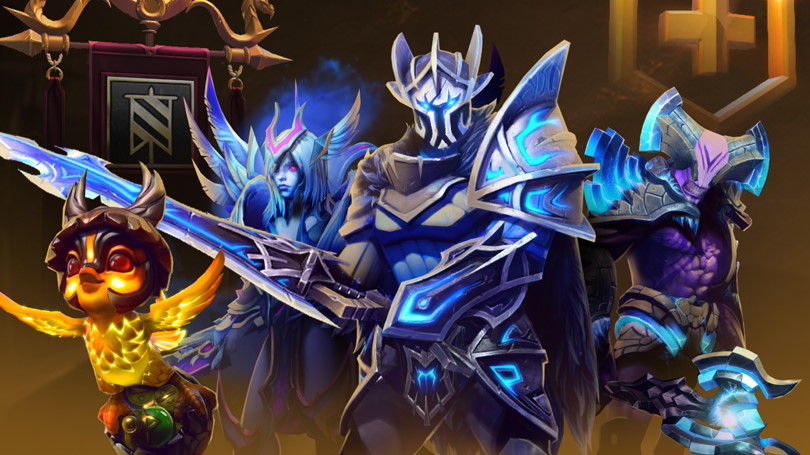Valve aims to combat Dota 2 toxicity with a CS:GO-style 'Overwatch' system
Not the Blizzard shooter, but the system of self-regulation that enables CS:GO community to quickly deal with bad behavior.

Valve is taking steps to crack down on smurfs, account boosting, and toxic behavior in Dota 2, with measures that will include the implementation of a system similar to that of Overwatch—not the Blizzard shooter, but the system in CS:GO that gives "qualified and experienced members of the community" the ability to review and act on reports of player toxicity.
First launched way back in 2013, Overwatch gives CS:GO players the ability to upload gameplay clips that they believe contain evidence of cheating or griefing. Instead of waiting for Valve to act on it, however, it's passed along to an "investigator," who will examine the clip to determine whether or not an offense has taken place. Everything is anonymous, so there's no risk of anyone getting hosed because of a pre-existing beef, and because the number of people scrutinizing in-game activity is much higher than it would be otherwise, it increases the odds that offenders are going to be caught, and—in theory, at least—reduces the likelihood of bad behavior in the first place..
CS:GO's Overwatch is focused primarily on nabbing cheaters rather than toxic jerks—"The penalty assigned to a suspect is proportional to their behavior. Suspects who are convicted of griefing are given a moderate cooldown, whereas cheaters are removed from the game entirely," the Counter-Strike Blog explains—but mechanically it should be a fairly straightforward transfer, although at this point Valve hasn't revealed any specifics on what it's got in mind.
"In terms of toxicity and game ruining behaviors from players, we are working on a new Overwatch style system, similar in some ways to that of CS:GO," Valve said in the most recent Dota 2 update. "We aren’t ready to share more information about this yet, but we will as soon as we are able. We are hoping to get this in the game as soon as possible."
Valve also warned that it has improved its ability to detect smurf accounts—new accounts created by experienced players so they can hammer on actual newcomers for shits and giggles, basically—and is now starting to filter them out in matchmaking.
"Smurf accounts are now much more likely to play with other smurfs only, this includes parties where only one player is a smurf. They are also likely to inherit any negative behavior scores of their alternate accounts, to limit their negative impact when playing," Valve said. "We’ve also done a few more improvements on making new accounts converge to their correct MMR faster, however there is still more to be done on that front. We have a couple of approaches to solve that which we are working on but they are in the research/experimental stage at this point."
Similar action is being taken against booster accounts: Valve said that more than 14,000 accounts have been banned over the past 30 days, and it has "set up systems to continually ban for boosting moving forward."
The biggest gaming news, reviews and hardware deals
Keep up to date with the most important stories and the best deals, as picked by the PC Gamer team.
Thanks, PCGamesN.

Andy has been gaming on PCs from the very beginning, starting as a youngster with text adventures and primitive action games on a cassette-based TRS80. From there he graduated to the glory days of Sierra Online adventures and Microprose sims, ran a local BBS, learned how to build PCs, and developed a longstanding love of RPGs, immersive sims, and shooters. He began writing videogame news in 2007 for The Escapist and somehow managed to avoid getting fired until 2014, when he joined the storied ranks of PC Gamer. He covers all aspects of the industry, from new game announcements and patch notes to legal disputes, Twitch beefs, esports, and Henry Cavill. Lots of Henry Cavill.

